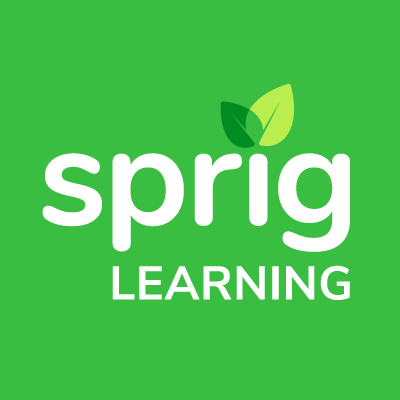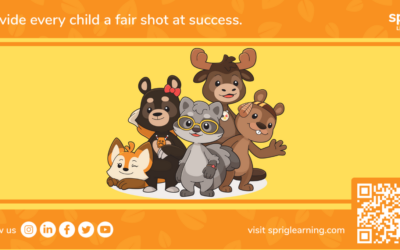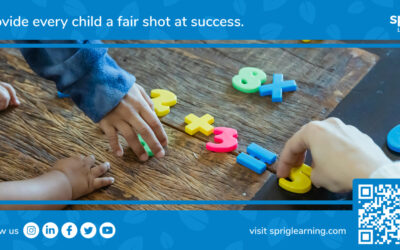That added piece of mind is thanks to our co-founder, Faud Khan. Faud is an international leader in cybersecurity with over 23 years of experience in the field, and he is known for his work with the International Organization for Standardization (ISO), as well as his work with the International Electrotechnical Commission (IEC).
So who better to share what makes the Sprig Learning Platform so secure than Faud himself! Keep reading to hear exactly what it is that makes our education platform so secure, and what you should look for when choosing an edtech partner.
Here’s a word from Faud:
With Sprig Learning, we had an opportunity to create an edtech product that was not only going to benefit the market from a holistic learning perspective, but one that provides enhanced privacy and security within the school ecosystem.
Cybersecurity is top-of-mind for most people, including us. As parents ourselves, we wanted to reassure our students, their parents, and their educators that we did everything in our power to identify and mitigate any risks to our online platform – as well as how we operate our company. I want to take this opportunity to share with you exactly what it is that makes Sprig Learning so secure. Allow me to dive into a little cybersecurity speak to help explain our process:
We take data security seriously.
So serious, in fact, that we have reviewed all of the possible ways in which our platform could be compromised. Every single one of them. Using a functional specification for our product development allows us to keep track of every component, identify potential risks, and methodically address each and every one. For a company that’s less than a year old, that is a pretty big accomplishment.
The functional specification makes it easier for us to complete both a Threat and Risk Assessment, as well as a Privacy Impact Assessment – two key components in creating and maintaining a secure platform. To be brief, completing a Threat and Risk Assessment allows us to identify any potential weaknesses in our digital properties, and address each one to reduce any risk. The Privacy Impact Assessment, on the other hand, helps us to identify and record any components of our system related to personal or student data that may be at risk – then develop a plan to manage and mitigate those risks.
These assessments and documentation cycles have allowed us to establish a Software Development Lifecycle that reduces the overall attack surface of our platform. We test ourselves and our platform. Constantly. Maintaining a secure platform doesn’t end once development is wrapped up. We aggressively monitor our servers for any sign of risk, and our multi-layered system ensures that if our web server were ever to become compromised, our student data remains safe. In fact, we even try to compromise our own platform with regular penetration testing in order to ensure that we did not make any mistakes in our code or in our server.
Our Promise to You.
As you can see from a security and privacy perspective, we have gone above and beyond the typical edtech standards. Our engineering team is strong in these disciplines, which helps us to grow and continuously develop our security and privacy controls as our business evolves. That is a commitment to all of the members of the Sprig Learning Team, and our promise to you – the Sprig Community. Should you have any more questions about our approach to security and privacy, please reach out to us at security@spriglearning.com.
Yours,
Faud Khan
Co-Founder and CTO Sprig Learning
More from the Sprig Blog
Elsapet the Puppet Makes Her Grand Debut, Spreading Language, Love & Autism Acceptance on World Autism Day
A new voice is joining the conversation on language, culture, and inclusion! Elsapet, a lovable puppet with a heart for connection, makes her official debut on April 2, World Autism Day.
Holistic Assessment in Early Math
To design holistic assessment for early math, it’s crucial to grasp its essence and application in educational contexts. This article explores the concept of holistic assessment, its alignment with early math education, and the types of knowledge it evaluates.
Let’s start with an understanding about how holistic assessment works in early math.
3 More Common Situations in Early Literacy Leadership and How to Respond
In a recent article, Sprig brings attention to crucial aspects of early literacy leadership with “11 Common Situations in Early Literacy and How to Respond”.
It’s a must-read, if you haven’t done so already. Going beyond case studies and researched best practices, Sprig revisits previous blogs, extracting valuable insights that can pose challenging situations to early literacy leaders and presents their corresponding responses.
As discussed, those initial 11 scenarios were not exhaustive by any means, and so Sprig expands the discourse in this article by introducing three additional common situations faced by early literacy leadership.




